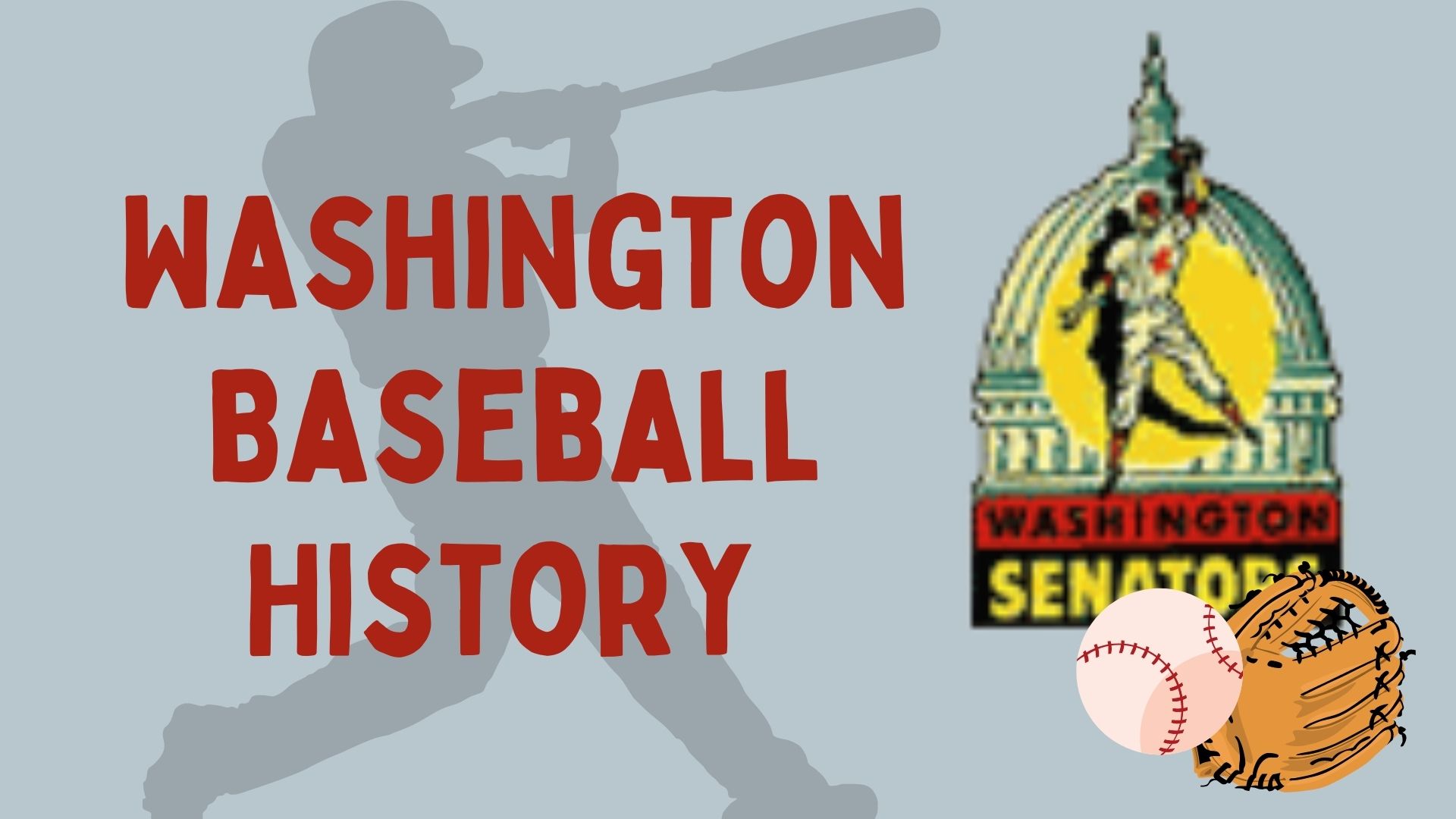In 1872, the second professional season in DC, the Washington Nationals joined the Olympics on the circuit. Both teams had started years before as amateurs. The Nationals only lasted one year. Both teams dissolved, leaving a baseball void filled by the Washington Blue Legs who joined the NA’s nine teams in 1873, finished in seventh place with an 8-31 record and then folded when the season ended.
The National Association itself only lasted through the 1875 season. The NA’s weak central structure gave the association very little power to police its members and many teams joined the league just for the chance to play top-tier teams and then quitting rather than traveling. The instability of the early National Association franchises exemplifies the difficulties of establishing the new professional baseball leagues. To this day there is disagreement about whether these early teams should be considered major leagues when calculating statistics. 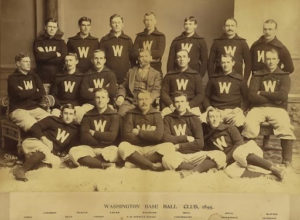
In 1875, the strongest of the National Association teams formed their own National League to professionalize the league. Membership was by invitation only, dues were substantial, and the teams were subject to expulsion for misbehavior. The new National League teams were the Boston Red Stockings, Philadelphia Athletics, Hartford Dark Blues, St. Louis Brown Stockings, Chicago White Stockings, New York Mutuals, Louisville Grays and the Cincinnati Reds.
In 1884, a Washington Nationals team played in the short-lived Union Association with a 47-65 record. The same year another Washington Nationals team finished thirteenth in the American Association with a 12-51 record.
In 1890 the Brotherhood of Professional Baseball Players formed the third major baseball league, the Players’ National League of Baseball Clubs to combat the “Reserve” clause and player’s salary limits. This new league instituted a two-umpire system and an advanced scheduling system. The rivalry between the three leagues brought all three to the brink of financial ruin. The three leagues lost a combined one million dollars leading to the eventual demise of the Players League and the American Association.
In 1891, the Washington Statesmen played in D.C. for the American Association. After this season, a peace agreement was reached between the two rival professional leagues, the American Association, and the National League. But it came too late to save the American Association, which folded at the conclusion of the 1891 season. The Statesmen were one of the four American Association teams to move to the National League. The team would generally be known as the Washington Senators until 1899 when the National League “contracted”.
The Senators, along with the Baltimore Orioles, Cleveland Spiders, and Louisville Colonels, were the four teams eliminated from the NL for the financial benefit of the other franchises after the 1899 season. The Nation’s Capital, with no baseball franchise, was an open market for the newly created American League which moved the former minor league Kansas City Blues to Washington in 1901 to take the Washington Senators’ name. They lost consistently, prompting a sportswriter to joke: “Washington: First in war, first in peace, and last in the American League.” 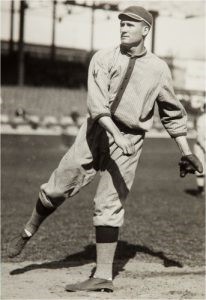
Kansas born Walter Perry Johnson spent his entire Hall-of-Fame pitching career at the Senators from 1907 to 1927 and managed the team 1929 through 1932. Johnson served as a Montgomery County Council member during the 1940s. A Bethesda high school was named in his honor in 1956 a few miles from his former home.
From 1911 to 1933, the Senators were one of the more successful franchises in Major League Baseball. The team’s rosters included Baseball Hall of Fame members Goose Goslin, Sam Rice, Joe Cronin, Bucky Harris, Heinie Manush and one of the greatest players and pitchers of all time, Walter Johnson. But the Senators are remembered more for their many years of mediocrity and futility, including six last-place finishes in the 1940s and 1950s. 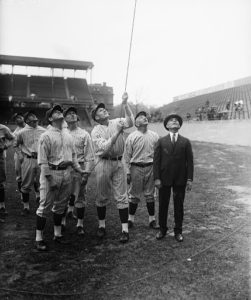
Clark Griffith managed the Washington Senators from 1912 to 1920. He owned the Senators from 1920 until his death in 1955. He was known for running the team on a shoestring and consequently for his faith in young players. The Senator’s ballpark was named for Griffith in 1923. It was the Senator’s home until 1960 and was demolished in 1965.
When Clark Griffith died in 1955, his nephew Calvin Griffth took over as team president. Griffith Stadium was too small, and the stadium’s football tenants were moving to a new stadium being built by the District of Columbia. Griffith had been considering moving the Senators, but his plans were rejected. For the 1961 season, the American League created an expansion franchise that became the Washington Senators for the 1961 season, removing one obstacle that was angering the U.S. Congress. Calvin Griffith sold Griffith Stadium to the city of Washington and leased it back until he moved the Senator’s team to Minneapolis-St. Paul as the Minnesota Twins.
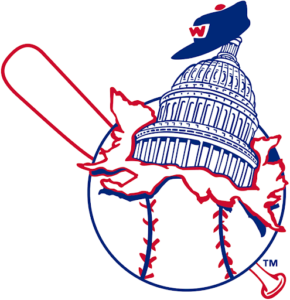 The expansion Senators continued to play in the new RFK Stadium until their last game in September 1971, when they forfeited the game because fans rampaged the field. That Senators team moved to Arlington, TX, and debuted as the Texas Rangers the following spring. Baseball would not return to the Nation’s Capital until 2005, when the former Montreal Expos became the Washington Nationals. The franchise won the National League pennant and the World Series in 2019.
The expansion Senators continued to play in the new RFK Stadium until their last game in September 1971, when they forfeited the game because fans rampaged the field. That Senators team moved to Arlington, TX, and debuted as the Texas Rangers the following spring. Baseball would not return to the Nation’s Capital until 2005, when the former Montreal Expos became the Washington Nationals. The franchise won the National League pennant and the World Series in 2019.
If you love baseball, be sure to register for Poolesville Seniors in-person event featuring Bill “Bat Boy” Turner and Ed “Boy in the Scoreboard” Baruch from the 1956 Washington Senators Baseball Season. The event is scheduled for Tuesday 4/5 at 7:00 pm.

